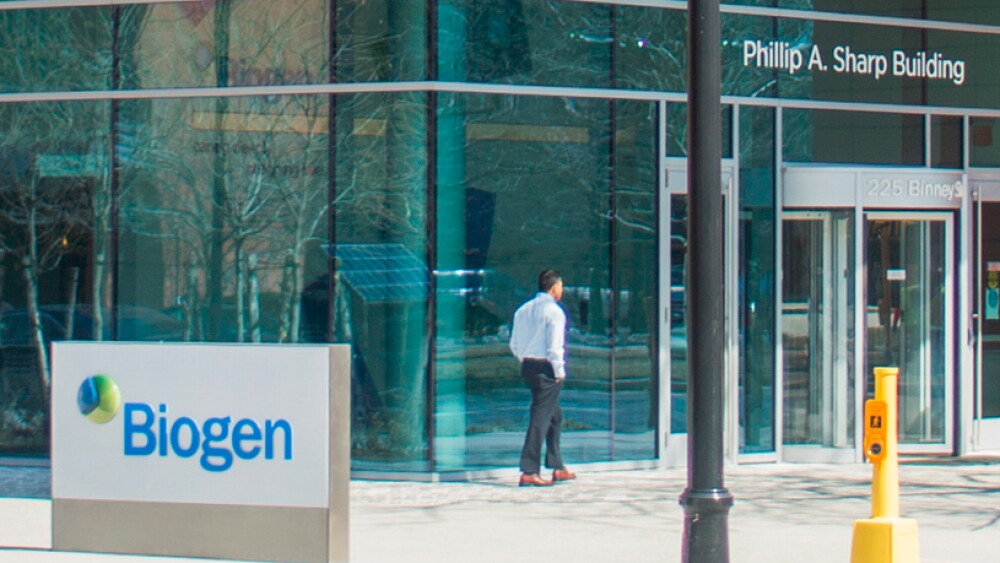August 3, 2016
By Mark Terry, BioSpace.com Breaking News Staff
Wish hard enough and your dreams may come true, apparently, at least a little bit. After weeks and even months of speculation that Cambridge, Massachusetts-based Biogen should either buy a company or be bought, the Wall Street Journal reported that both Merck & Co. and Allergan have been in preliminary talks with Biogen over an acquisition.
Biogen had lost a lot of value over the last year, although the rumors caused the shares to jump from $224.60 on June 27 to a current price of $330.11. Although the company’s multiple sclerosis (MS) franchise is still a powerhouse, sales have been sagging. In addition, the company’s chief executive officer, George Scangos, has announced he is leaving the company as soon as a replacement is found.
The company also took a hard hit recently when its opicinumab (anti-LINGO-1), a fully human monoclonal antibody that the company hoped could repair the nerve damage caused by MS, failed in a clinical trial. The company’s stock lost $8 billion in market value overnight.
Aside from its blockbuster MS franchise, what has other companies interested in Biogen is its aducanumab, an experimental drug for Alzheimer’s disease. It’s shown statistically significant improvement in two measures of cognition over placebo in earlier trials, which were promising enough that it was streamlined past Phase II trials and directly into a Phase III trial. Some results are expected sometime this year, although more definitive data is expected in 2017.
“With the departure of their CEO, Biogen has put up a short-term ‘for sale’ sign indicating to interested parties that now would be a time to show interest,” said Geoffrey Porges, an analyst at Leerink Partners, to Bloomberg. “There are other potential parties that are likely to be interested; there isn’t a pharmaceutical company on the planet that wouldn’t like to have a leading Alzheimer’s disease program.”
Most analysts believe Biogen isn’t interested in being acquired, and although Merck, Allergan and Biogen declined to comment to the Wall Street Journal, a separate CNBC report indicated that Allergan probably would not push for a deal, according to an anonymous source.
Michael Yee, an analyst with RBC Capital Markets, told Bloomberg that a Biogen takeover could run $375 to $475 per share, depending on how the buyer feels about the Alzheimer’s drug or the company’s future profits. Brian Abrahams, a Jefferies Group analyst, cited a possible takeover price of $400 per share. The company’s peak stock price was $475.98 on March 20, 2015.
Allergan, for its part, after the fall-through of the Pfizer merger and the sale of its generic drugs business to Teva Pharmaceutical Industries , has indicated it’s more interested in smaller deals, what Brent Saunders, Allergan’s chief executive officer, described in June as “more smaller-scale tuck-in deals that will support our therapeutic area leadership and innovation.”
Merck hasn’t made many large deals, but the company’s chief executive officer, Ken Frazier, indicated in July that growing business was a priority, and it has an Alzheimer’s drug, MK-8931 (verubecestat), which is in a Phase II/III trial.
With all that, some analysts are skeptical, Max Jacobs, an analyst at Edison Investment Research, said in a note, “Although Biogen shares were halted on a report of takeover interest from Merck and Allergan, it may be wise to be skeptical. While a takeover could happen for strategic reasons, Biogen offers neither company growth nor synergies and in the case of Allergan an acquisition would practically be a merger of equals when taking into account a takeover premium.”





